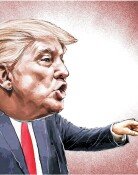Public Sector CEOs Earn Double Pay via Bonuses
Public Sector CEOs Earn Double Pay via Bonuses
Posted October. 04, 2008 09:34,
A report announced yesterday said senior executives at eight state-run corporations have received incentives equal to double their base pay, inviting harsh criticism over budget waste.
Certain auditors not directly engaged in managerial activities even received up to 200 million won (163,654 U.S. dollars) in bonuses, leading to calls for reform.
This was according to a Strategy and Finance Ministry report announced by ruling Grand National Party member Nah Seong-lin.
Incentives given to presidents and auditors at eight out of 17 state-funded agencies surpassed their base pay last year.
Korea Tourism Organizations president earned 183.39 million won (149,889 dollars) in bonuses and its auditor 171.04 million won (139,795 dollars), almost twice their base pay.
The head and auditor of Korea Expressway Corp. each received less than 100 million won (81,732 dollars) in base pay last year. Their individual compensation packages last year, however, reached nearly 300 million won (245,198 dollars) each as the president got 185.4 million won (151,532 dollars) and the auditor 183 million won (149,570 dollars) in incentives.
The presidents and auditors of the Korea Electric Power Corp., Korea Water Resources Corp., Korea Minting & Security Printing Corp., Korea Agro-Fisheries Trade Corp., Korea National Oil Corp. and Korea Land Corp. got bonuses larger than their annual salaries.
The Strategy and Finance Ministry allows state-run companies to give incentives up to 200 percent of annual salary. Public sector executives earn bonuses based on their performance the previous year.
Vice Strategy and Finance Minister Bae Kook-hwan said, The government has given incentives to the heads of state-run corporations since their annual salaries are much lower than their private sector counterparts.
Nevertheless, many experts have questioned whether public sector CEOs, who face little competition, should be paid the same as those at private companies. Excessive bonuses for auditors are also facing severe criticism since many of them are government appointed.
koh@donga.com







